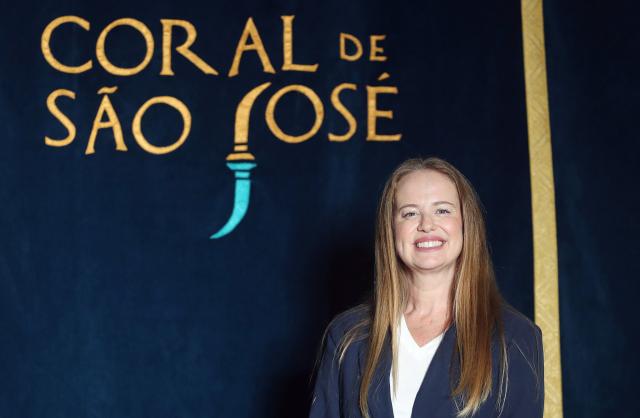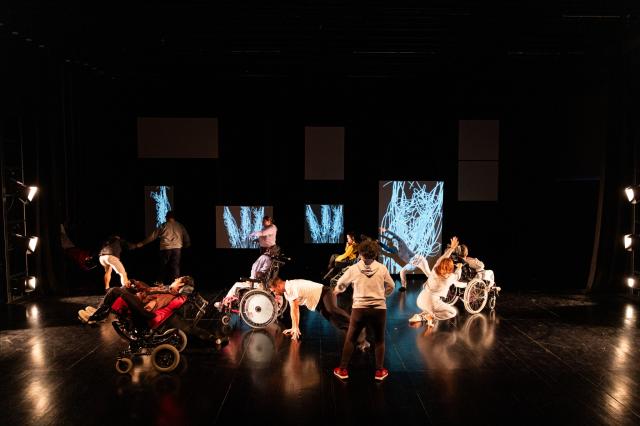The European Group on Ethics in Science and New Technologies recently delivered an opinion to the European Commission on Democracy in the Digital Age. In what context did this take place?
The European Group on Ethics in Science and New Technologies (EGE), of which I have the honor to be Vice-Chair, brings together 15 experts from a plurality of academic, scientific and professional fields, selected from the 27 Member States of the European Union (EU), who advise the President of the European Commission, Ursula van der Leyen, on European policies to be launched by the Commission that have a strong ethical dimension. This group was set up in 1991 by President Jacques Delors, who considered that public policies, to be consensual in plural societies such as Europe's, need an ethical review.
Accordingly, and although the EGE has the autonomy to take the initiative to pronounce itself on topics identified as ethically relevant, the common procedure for its work is to be commissioned by the President of the European Commission to analyze ethically specific themes that the Commission considers to be priorities for the future of Europe. Throughout its history, the EGE has analyzed quite diverse topics such as crisis management, artificial intelligence, the future of work, genome editing, agriculture, energy, synthetic biology, security and surveillance, the role of values in policy design, etc.
This latest work of the European Ethics Group on Democracy in the Digital Age, formally handed over in Brussels to European Commission Vice-Chair Dubravka Šuica, was requested by President von der Leyen to guide the Commission in its efforts to respond positively to the challenges facing European democracies (and beyond) today and to seek to strengthen them.
The EU is the region in the world with the most fully functioning democracies. But the European Commission is aware that liberal democracies face serious problems, which have a corrosive effect on their integrity and proper functioning. International indices show that, on the one hand, there are more democratic countries today than half a century ago, and on the other, that the world has become less democratic in recent years. This fact is worrying. Democracy is in decline - that is the conclusion to be drawn. And we realize that, for example, the decline in the quality of democracies in the Western world can be measured, in inverse proportionality, by the levels of corruption that have been increasing. I believe that we also have this perception in Portugal.
The first sentence of the EGE Report is understandable: "democracy is at risk"!
What risks have been identified for democratic countries regarding the use of new technologies and the advance of artificial intelligence itself?
The GES starts from the concept that democracy is not only a political regime, but also and essentially a set of fundamental ethical values and principles, from respect for human dignity to the promotion of social justice and always in full compliance with human rights. The factors eroding democracy are manifold, ranging from exacerbated and selfish individualism that jeopardizes peaceful coexistence in society, to the proliferation of populisms that reduce the broad horizon of the future to an atrophied present, made up of immediate measures and dictated by the manipulation of reactions. We have a clear and unequivocal realization that Western liberal democracy is not only in decline, but at risk.
It is in this context that the Democracy in the Digital Age Report is set, focusing on the impacts of information and communication technologies and artificial intelligence on democracies.
The perspective is not one of criticism of technological innovation. The GEE recognizes the importance of innovation and technology in supporting democracy, for example: in the new possibilities for participation in community life, in the commitment to social causes, as has been seen in the environmental and animal fields, and also in the defense of human rights in various international contexts; but we must not forget or devalue the new instruments for the surveillance of citizens, from the most naive, such as making a transaction at an ATM where the presence of the person is not enough.
The EGE also highlights the risks posed by current socio-technical arrangements, including the spread of false information or manipulation of public debate, polarizing discussion and hindering the building of consensus that is indispensable in a democracy, and also manipulating elections, as has been proven (Brexit, Trump's election in the United States), striking at the heart of democracy: every person a free vote.
The Report examines different aspects of privacy and the shrinking space for individuals to act autonomously: paradoxically, digital technologies have been reducing individual freedom, both of thought and action, while at the same time seeming to herald the demise of privacy as a proper space for building and strengthening our identity.
One of the most innovative and worrying aspects will be the evidence of the expansion of private technology companies into the public sector, raising questions of (lack of) fair benefits for the public, which feeds their profits; the increased power of commercial entities, which hold citizens' personal data and the ability to set standards to influence their choices; and, even more seriously, framing access to essential public goods. That is, access to health, education, housing is largely through digital platforms that can be reconfigured or suppressed by the technology companies that own them, subordinating access to public goods to the needs of citizens.
What recommendations are made to the European Commission in this opinion?
These developments threaten the identity values of the democratic system. Since democracy is the form of government best suited to realizing fundamental rights and values, strengthening it becomes an ethical necessity. This is the basis for the GEE to draw up a comprehensive, systematized, and pragmatic set of Recommendations, structuring concrete actions that, in their convergence, can halt the deterioration of democracy and promote its development.
A strong, substantive and broad conceptualization of democracy is recommended, which does not reduce it only to electoral acts, in which, moreover, there are increasing abstention rates, but as a shared experience of human rights. Hence, Democracy must be more inclusive, which is a second fundamental Recommendation: stimulating civic participation, investing in civic education, as well as in digital literacy to build digital citizenship. This is followed, of course, by a Recommendation on recognizing the importance of the civil community and strengthening its organizations.
But perhaps the most relevant Recommendations are those that insist on the need to design technologies that respect what democracy stands for and its fundamental values, to regulate accordingly and to implement policies that promote it, putting technologies at the service of the common good, thus also excluding the fulfilment of the basic needs of market laws.
A final recommendation focuses on the need for the EU to develop a diplomacy that is attentive to digital resources for strengthening political authoritarianism and dictatorial regimes, while valuing democracy for the people and the planet.
What can the European Union do in terms of regulation in this area?
It's an interesting question. Most people think that the EU can do little or nothing in this area beyond chasing the advances of the big geopolitical blocs, the United States and China, and that it is not even a match for them.
The EU has developed its AI policy in respect of the fundamental values and rights of citizens, adopting a human-centered AI development, designed by ethical requirements (ethics by design), founded on trust (trustworthy AI) and assessed on the basis of the risk it represents. In other words, it is once again ethical concerns that shape AI regulation, which many consider a weakness. The accusation is not new and has already been used for other policies such as animal experimentation or clinical trials or data protection. However, what the experience with these Guidelines/Regulations shows is that, despite the initial controversy they generated, they have become paradigmatic, thus influencing the rest of the world.
I am confident that the same will happen with the European AI regulation.
How can the media be better protected, and their role strengthened in the fight against fake content?
Social networks have made it possible for any citizen to publish any content, without any scrutiny, in particular of truth, objectivity, impartiality, partiality, rigor..., at a dizzying pace, continuously, without working hours. In fact, they are merely opinions, with no need for substantiation or argumentation. The problem is that they are dressed up as journalism, so they are taken as factual and serious. Professional journalism has been pushed to compete with this by-the-minute content without any confirmation of suitability - indispensable requirements for the media. At the same time, advertising revenues are increasingly scarce, being diverted to various sites such as those of influencers.
Journalism is in crisis. And serious journalism is a pillar of democracy. But in our digital society, it is increasingly unable to survive. Saving it must be a public responsibility, which will have to be done through adequate funding. I believe that this is an inevitability so that not only the big media companies that are able to infiltrate their power into all other powers, such as those of politics or business, survive. The challenge will be to allocate funding without jeopardizing independence, a difficult balance that will require robust integrity from journalists.
One of the Recommendations of the Report is precisely to "protect and strengthen the power of journalists", in favor of the independence and rigor of reporting.







